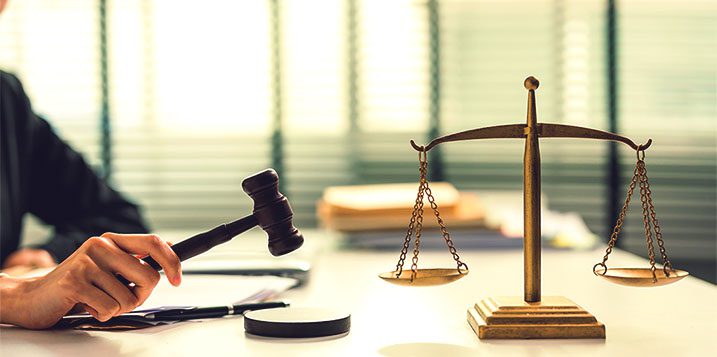Navigating the New York Civil Court Process: A Beginner’s Guide to Starting a Civil Case

The New York civil court system can feel overwhelming, especially if you’re unfamiliar with its rules and requirements. In this guide, The Process Server (TPS) breaks down the essential steps to help you navigate your case with confidence—from filing complaints to understanding Alternative Dispute Resolution (ADR) options in New York.
Understanding the New York Civil Court Process
Introduction to Civil Cases in New York
Civil cases in New York address disputes over legal rights and responsibilities between individuals, businesses, or government entities. Unlike criminal cases, which focus on penalizing violations, civil cases aim for compensation or specific actions rather than punishment.
- Filing the Complaint: The process begins when the plaintiff submits a complaint, outlining their claims and desired remedies.
- Receiving a Summons: The defendant receives a summons, notifying them of the lawsuit and their need to respond.
- Types of Civil Cases: Common cases include contract disputes, personal injury claims, and property conflicts.
Understanding these basic elements of a civil case is critical, as it sets the stage for the entire litigation process in New York.
The Structure of New York’s Civil Court System
New York’s civil courts follow a hierarchical structure that categorizes cases based on their complexity and financial stakes.
- Lower Courts: The New York City Civil Court and District Courts handle smaller claims, generally below $25,000.
- Supreme Court: For claims over $25,000, the Supreme Court—the highest trial court for civil cases—steps in.
- Specialized Courts: Family Court and Surrogate’s Court handle cases related to family matters and estates.
- Appellate Courts: The Appellate Division and the Court of Appeals review lower court decisions.
Knowing which court to approach can significantly affect the progress and outcome of your case. TPS can assist you in determining the best path forward based on your unique situation.
Why Statutes of Limitations Matter
Statutes of limitations are crucial in civil cases, setting strict deadlines for filing claims.
- Time-Sensitive Filing: These deadlines vary by case type—personal injury, contract breaches, and property disputes all have different timelines.
- Consequences of Missing Deadlines: If you miss the deadline, your case may be dismissed, barring any chance for legal action.
For plaintiffs, meeting these deadlines is essential to preserving your right to pursue justice. For defendants, understanding these limits can also be strategically beneficial.
Starting a Civil Case in New York
Steps for Filing Complaints
Filing a complaint initiates a civil case in New York and requires a few key actions:
- Drafting the Complaint: Outline the facts, harm, and requested remedies clearly and accurately.
- Filing with the Court: Submit the complaint to the appropriate court, ensuring it meets all procedural rules. Consider factors like jurisdiction and the type of dispute.
- Paying Filing Fees: Fees vary by court and case, so be sure to account for these in your planning.
- Service of Process: After filing, the complaint and summons must be served on the defendant to officially notify them of the case.
Proper service is critical—it guarantees the defendant’s right to due process, setting a solid foundation for the litigation process.
Understanding Service Requirements
Service of process ensures that all parties are properly informed about the legal action.
- New York’s Rules for Service: Documents are typically delivered personally, through an agent, or via certified mail in certain cases.
- Requirements for Servers: The individual serving documents must be at least 18 and not a party to the case.
- Proof of Service: Once served, an affidavit must be filed with the court to confirm the defendant has been notified.
Any mistakes in this process can lead to delays or even dismissal. TPS prioritizes accuracy in every step, ensuring the smooth progress of your case.
Initial Stages of the Litigation Process
After serving the summons and complaint, the litigation process begins:
- Filing an Answer: The defendant typically has 20-30 days to respond to the complaint, depending on how they were served.
- Motions to Dismiss: The defendant may file a motion to dismiss if they believe the case lacks merit or jurisdiction.
- Discovery: Both parties exchange relevant information, documents, and evidence in preparation for trial. Discovery tools include depositions, interrogatories, and requests for admissions.
These initial stages are critical for gathering the evidence needed to support your case. TPS offers support throughout this process, helping you stay organized and prepared.
Exploring Alternative Dispute Resolution (ADR) in New York
The Value of ADR in Civil Cases
Alternative Dispute Resolution (ADR) provides a way to settle disputes outside of court—an appealing option for many civil cases.
- Mediation: A neutral third party helps parties reach an agreement.
- Arbitration: A binding decision is made by an arbitrator based on presented evidence.
New York courts often encourage ADR to reduce caseloads and foster amicable settlements. ADR is ideal when you want to preserve relationships or resolve disputes faster.
Benefits of Settling Before Trial
Settling before trial can save time, money, and stress:
- Cost-Effective: Trials are expensive due to court costs, attorney fees, and more. A settlement can significantly reduce these expenses.
- Quicker Resolution: ADR can expedite case resolution, allowing parties to move forward sooner.
- Control Over Outcome: Settlements offer a chance to negotiate mutually beneficial terms, rather than leaving the decision to a judge or jury.
- Privacy: Settlements are confidential, which is often a priority for businesses or individuals.
For cases where ADR is a viable option, TPS can guide you through the settlement process, aiming to achieve the best possible outcome without the need for a lengthy court battle.
The Process Server is here to simplify every step of the New York civil court process, from filing initial complaints to exploring Alternative Dispute Resolution. By following this guide, you can navigate your case with greater confidence, knowing you’re well-prepared for each phase.
